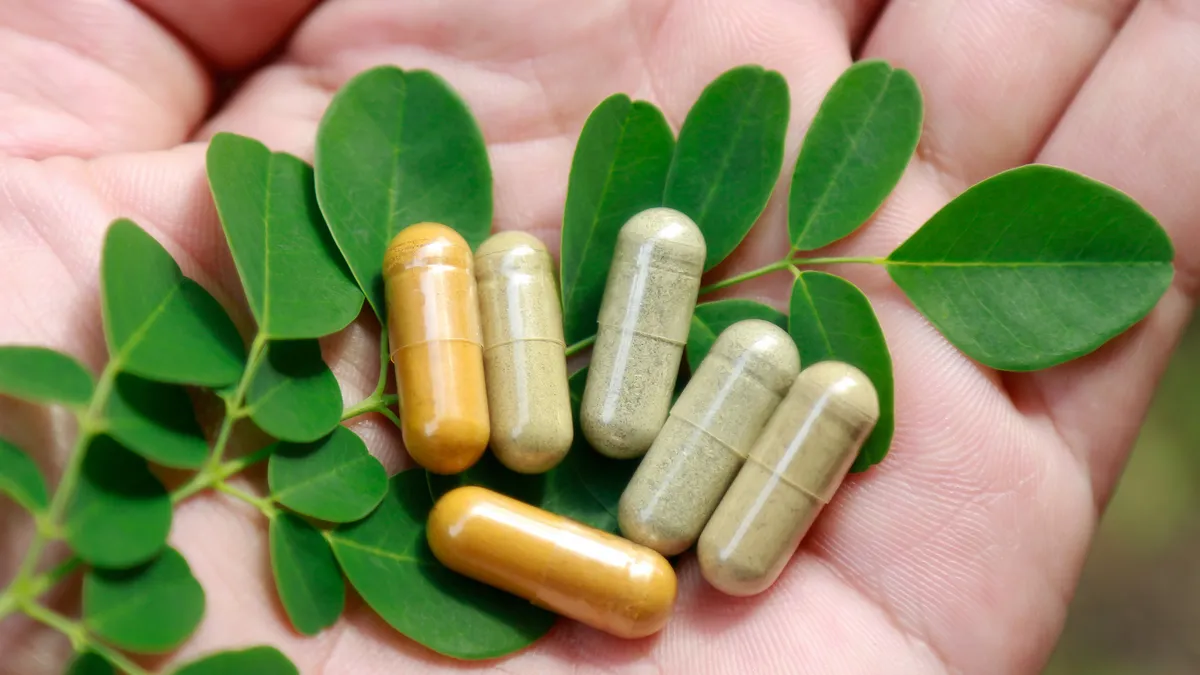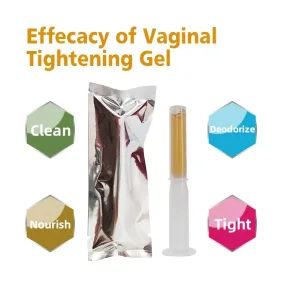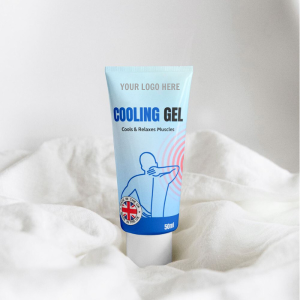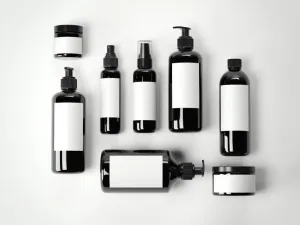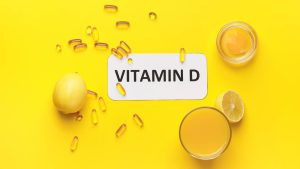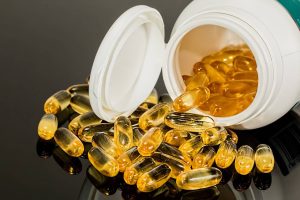Vegan supplement manufacturing is “refreshing” the health and wellness industry by providing plant-based alternatives that cater to the nutritional needs of vegans and vegetarians. These supplements offer essential vitamins, minerals, and proteins, ensuring a balanced diet without animal products.
Definition of vegan supplements
Vegan supplements are dietary supplements made entirely from plant-based sources without any animal-derived ingredients. They provide nutrients that might be less abundant or absent in a vegan diet, such as vitamin B12, vitamin D, omega-3 fatty acids, iron, and protein.
These supplements offer a way for individuals to have a vegan lifestyle to meet their nutritional needs while following their interests and dietary preferences.
The Goods and The Bads of Vegan Food Supplements
Let’s break down the advantages and disadvantages of vegan food supplements, such as:
The Goods
- Providing Nutrient Deficiencies: Food supplements can specifically address and compensate for certain nutrient deficiencies.
- Athletes’ Nutrient Support: Aathletes can meet their heightened nutrient demands through the use of supplements.
- Vegan Dietary Enhancement: Thoughtfully chosen and dosed supplements serve as crucial dietary additions for vegans.
- Cruelty-Free Composition: Vegan supplements are free from animal-derived ingredients, aligning with cruelty-free practices.
- Lactose-Free Solution: They provide a suitable alternative for lactose-intolerant individuals by avoiding lactose as a carrier, common in conventional pills.
The Bads
Besides advantages, vegan supplements still have side effects:
- Potential Medication Interactions: Supplements interact with medications under certain conditions.
- Risk of Overdose: Excessive intake of supplements can pose health risks.
- Regulatory Status: As food supplements are food, they bypass the approval and rigorous testing required for medications.
What supplements should vegans consider using?
This section explores essential supplements that can help vegans maintain optimal health and ensure they receive all necessary nutrients.
Vitamin B-12
Vitamin B-12 is crucial for making DNA, red blood cells, and for nerve function. Since our bodies can’t make this vitamin, we usually get it from animal products such as meat and dairy. Consequently, vegans, who avoid these foods, have a higher risk of using a vitamin B-12 deficiency compared to those who eat meat.
- Recommended intake: 2.4 micrograms per day
Symptoms of Vitamin B-12 Deficiency Include:
- Fatigue and weakness
- Reduced appetite
- Blurred vision
- Numbness or tingling in hands and feet
- Digestive issues
- Lightheadedness
- Depression and mood swings
- Memory impairment
What Foods Have Vitamin B-12
Vegans might find it challenging to source foods high in vitamin B-12, as it comes from animal products. Nevertheless, many food producers targeting plant-based consumers fortify their offerings with B-12. These include fortified breakfast cereals, nutritional yeast, plant-based milk, and tofu, providing accessible options for vegans to maintain enough B-12 levels.
Iron
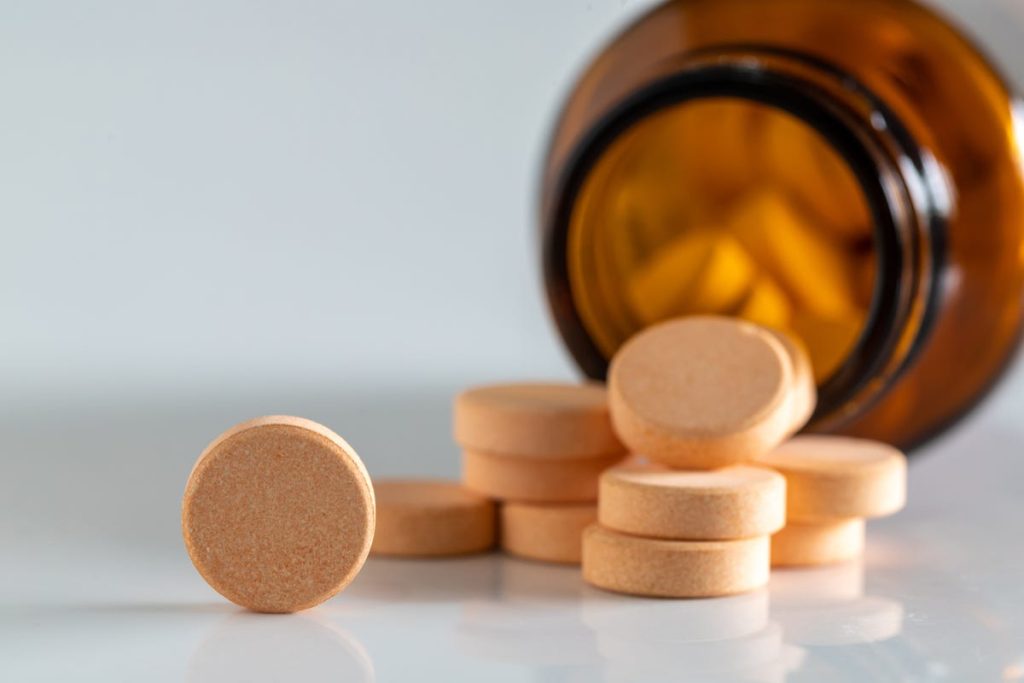
- Recommended intake: 8 milligrams for men over 19 years old and adults under 51 years old, or 18 milligrams for women between 19 and 51 years old (According ods.od.nih.gov.)
Iron is essential for transporting oxygen throughout the body, hormone production, and brain development in children. However, vegans may need to consume almost double the daily recommended amount of iron compared to meat-eaters. The reason is that iron from plant sources, known as nonheme iron, is less easily absorbed by the body.
Symptoms of Iron deficiency
- Weakness
- Fatigue
- Cold hands and feet
- Feeling lightheaded or dizzy
- Chest pain or shortness of breath
- Thin and brittle nails
- Cravings for nonfood items (like dirt or ice)
What Foods Have Iron
Iron comes in two forms: nonheme, found in plant foods, and heme, found in animal products. Vegans can meet their iron needs by consuming a variety of plant-based foods, such as beans, tofu, fortified cereals, pumpkin seeds, dried fruits, spinach, broccoli, quinoa, nuts, and whole-grain pasta.
Calcium
Calcium is a vital mineral that plays a crucial role in maintaining several key bodily functions. It is essential for maintaining bone health, regulating blood flow, and facilitating the release of hormones. Additionally, calcium is fundamental in strengthening muscles and teeth. Vegans may find it challenging to obtain sufficient calcium through their diet, as it is found in dairy products.
- Recommended intake: 1,000 milligrams for adults under 50 years old and 1,200 milligrams for women over 50 and men over 70.
Symptoms of Calcium deficiency
- Memory loss
- Confusion
- Numbness and tingling in the hands, feet, and face
- Muscle cramps
- Depression
- Thin and brittle nails
What Foods Have Calcium
Most Americans get their calcium mainly from dairy products like milk, cheese, and yogurt. However, for vegans, plant-based sources such as chia seeds, soy milk, tofu, almonds, kale, broccoli, and arugula are good alternatives. These foods offer an effective way to meet calcium needs without dairy consumption.
Vitamin D
- Recommended intake: 600 international units for adults up to 70 years old or 800 IU for adults over 70 years old.
Your body can naturally produce Vitamin D when exposed to sunlight. However, Vitamin D deficiency is widespread, affecting 42% of American adults who don’t meet the daily recommendation. Foods like fish and eggs, which contain Vitamin D, often don’t align with vegan diets. Consequently, non-meat eaters might difficult to reach the recommended intake, unless they get Vitamin D through supplements or direct sunlight.
Symptoms of Vitamin D deficiency
- Bone pain
- Fatigue
- Muscle weakness
- Mood changes
What Foods Have Vitamin D
Different food includes vitamin D, such as mushrooms, fortified cereal and fortified drinks like orange juice, soy milk, and rice milk.
Zinc
- Recommended intake: 8 milligrams for adult women and 11 milligrams for adult men.
Zinc is crucial for various bodily functions such as growth, immune response, wound healing, and blood clotting. Since the body cannot produce or store zinc, it’s necessary to consume zinc-rich foods or supplements. However, many zinc-containing foods are not suitable for vegans, leading to often lower zinc levels in those following plant-based diets compared to meat-eaters.
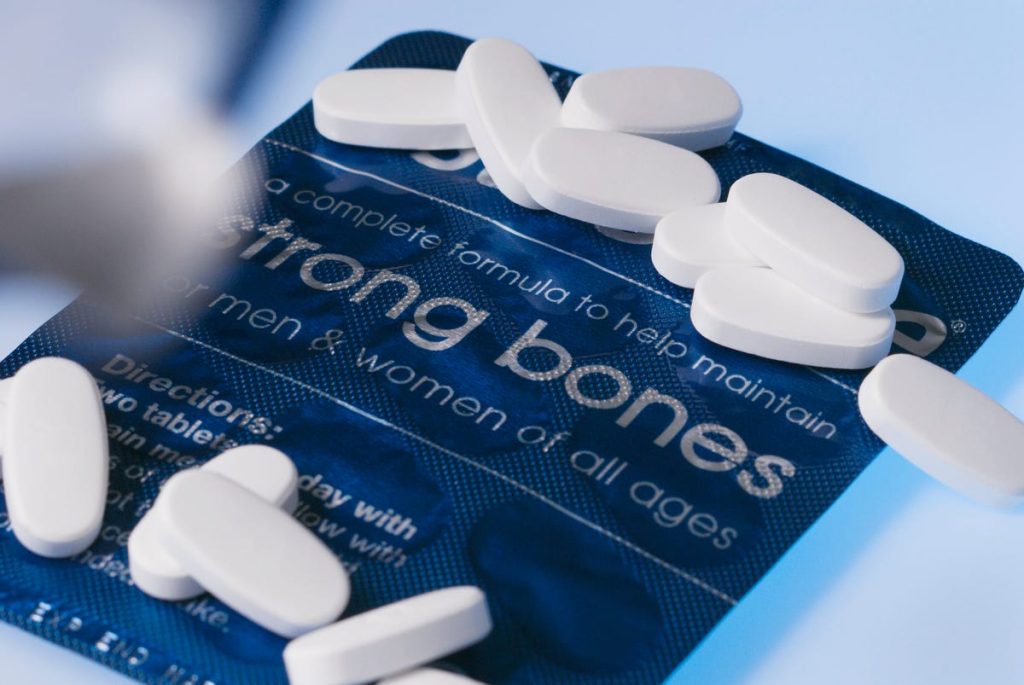
Symptoms of Zinc deficiency
- Slow growth
- Impaired immune function
- Skin lesions
- Impotence
- Hair loss
- Diarrhea
- Delayed healing of wounds
- Taste abnormalities
What Foods Have Zinc
Fish, poultry, and meat are the sources of zinc in diets that include animal products. For vegans and vegetarians, alternative sources of zinc are available in foods such as legumes, nuts, seeds, whole grains, mushrooms, kale, and asparagus.
Omega-3 fatty acids
- Recommended intake: 500 milligrams of eicosapentaenoic acid (EPA) and docosahexaenoic acid (DHA) combined
Omega-3 fatty acids, vital for heart health, blood pressure regulation, and reducing inflammation, come in three main types: DHA, EPA, and ALA. DHA and EPA. All types are easily found in fish, challenging for vegans to get enough from their diet alone.
Symptoms of Omega-3 fatty acids deficiency
- Dry, itchy skin
- Increased acne
- Depression
- Dry eyes
- Vision problems
- Stiff or painful joints
- Thin or dry hair
What Foods Have Omega-3 fatty acids
Salmon, herring, and mackerel are the best choices for oily fish with omega-3 fatty acids. However, for those on a vegan diet, alternative sources like flax seeds, chia seeds, hemp seeds, seaweed, walnuts, soybeans, and Brussels sprouts can provide the necessary daily intake of omega-3s.
Iodine
Daily recommended intake: 150 micrograms for adults
Iodine, essential for producing thyroid hormones, plays a key role in metabolism and cell repair. This mineral is found in certain foods, soil, and is also added to some table salts.
Symptoms of Iodine deficiency
- Swollen neck
- Weight gain
- Hair loss
- Dry skin
- Feeling cold
- Slower heart rate
- Learning difficulties
What Foods Have Iodine
Iodine is easily found in animal products like fish, eggs and dairy. For vegans, iodine-rich options include seaweed, lima beans, prunes, and iodized table salt.
Vitamin K
- Recommended intake: 90 micrograms for women or 120 micrograms for men
Vitamin K, essential for blood clotting and preventing excessive bleeding, is available in two forms: K1, found in certain vegetables and plant oils, and K2, present in animal products and fermented foods. Due to the limited natural vegan sources of Vitamin K2, vegans must consider supplements or fermented products to maintain adequate levels.

Many older people don’t get enough vitamin K.
Symptoms of Vitamin K deficiency
- Excessive bleeding
- Easy bruising
- Blood clots under nails
- Dark and bloody stool
What Foods Have Vitamin K
Individuals following plant-based diets can source Vitamin K1 from leafy greens and vegetables, including kale, spinach, collard greens, broccoli, and Brussels sprouts. For Vitamin K2, vegan options like natto (fermented soybeans), vegan sauerkraut, kimchi, and dairy-free kefir, which are all fermented foods, are available.
How UKSupplementmanufacturer.com produces vegan supplements
Our manufacturing process is efficient for the rapid scaling and development of supplements, ensuring a swift market launch. Here are the key steps involved in the production of private label vegan supplements.
Step 1: Research and Development
Begin by conducting thorough research into vegan supplement ingredients and market trends. This phase involves identifying effective and sustainable vegan ingredients, understanding the nutritional needs of your target market, and staying updated with industry regulations and standards.

Research and Development
Step 2: Sourcing Vegan Ingredients
Source high-quality vegan ingredients, ensuring they are non-GMO, organic, and ethically sourced. Partner with suppliers who provide certificates of analysis (COA) for their products, ensuring purity and potency. Consider global suppliers for a diverse range of vegan ingredients.
Step 3: Formulation of Vegan Supplements
Develop unique formulations for your vegan supplements. Work with nutritionists and food scientists to create effective, safe, and palatable products. Ensure that all ingredients are plant-based and free from animal-derived substances.
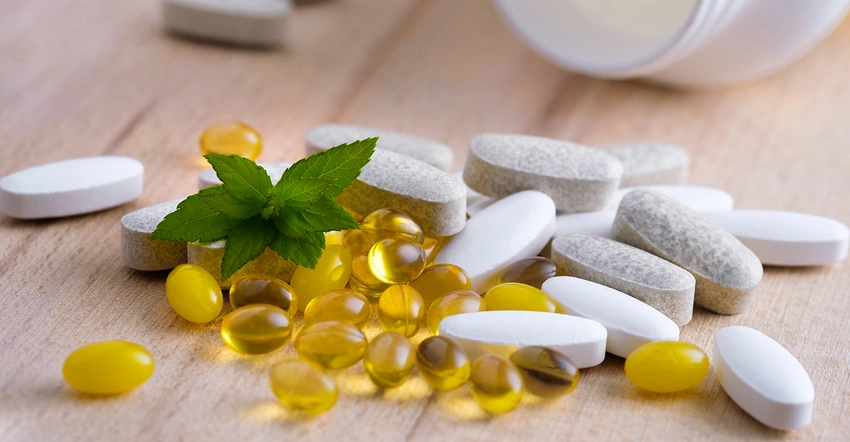
Formulation of Vegan Supplements
Step 4: Testing for Efficacy and Safety
Conduct rigorous testing of your supplements to ensure they are effective and safe for consumption. This includes stability testing, nutritional analysis, and allergen testing. Third-party testing can add an extra layer of credibility.
Step 5: Quality Control and Certification
Implement strict quality control measures throughout the manufacturing process. Obtain certifications such as Vegan, Non-GMO, and Organic to assure customers of the product’s authenticity and quality.
Choose sustainable and eco-friendly packaging options that align with the vegan ethos. Packaging should protect the product’s integrity while minimizing environmental impact.
Step 6: Labeling and Compliance
Ensure that your labels are accurate and compliant with regulatory standards, providing clear information about the vegan status, ingredients, nutritional content, and any health claims. It’s crucial to stay updated with regional and international labeling laws to maintain transparency and build trust with your consumers.
3 Expert Tips For Vegan Supplements Manufacturing
When entering the supplement manufacturing field, it’s crucial to gather expert advice for success. Here are simplified tips to help you stand out:
Consult a Nutritionist
Getting advice from a nutritionist is key. They can fine-tune your supplement recipes to meet specific health goals, adding a professional touch.
Test Your Product
In a competitive market, testing for safety and effectiveness is essential. Conduct thorough tests before launch to ensure your supplement meets high standards and gains trust.
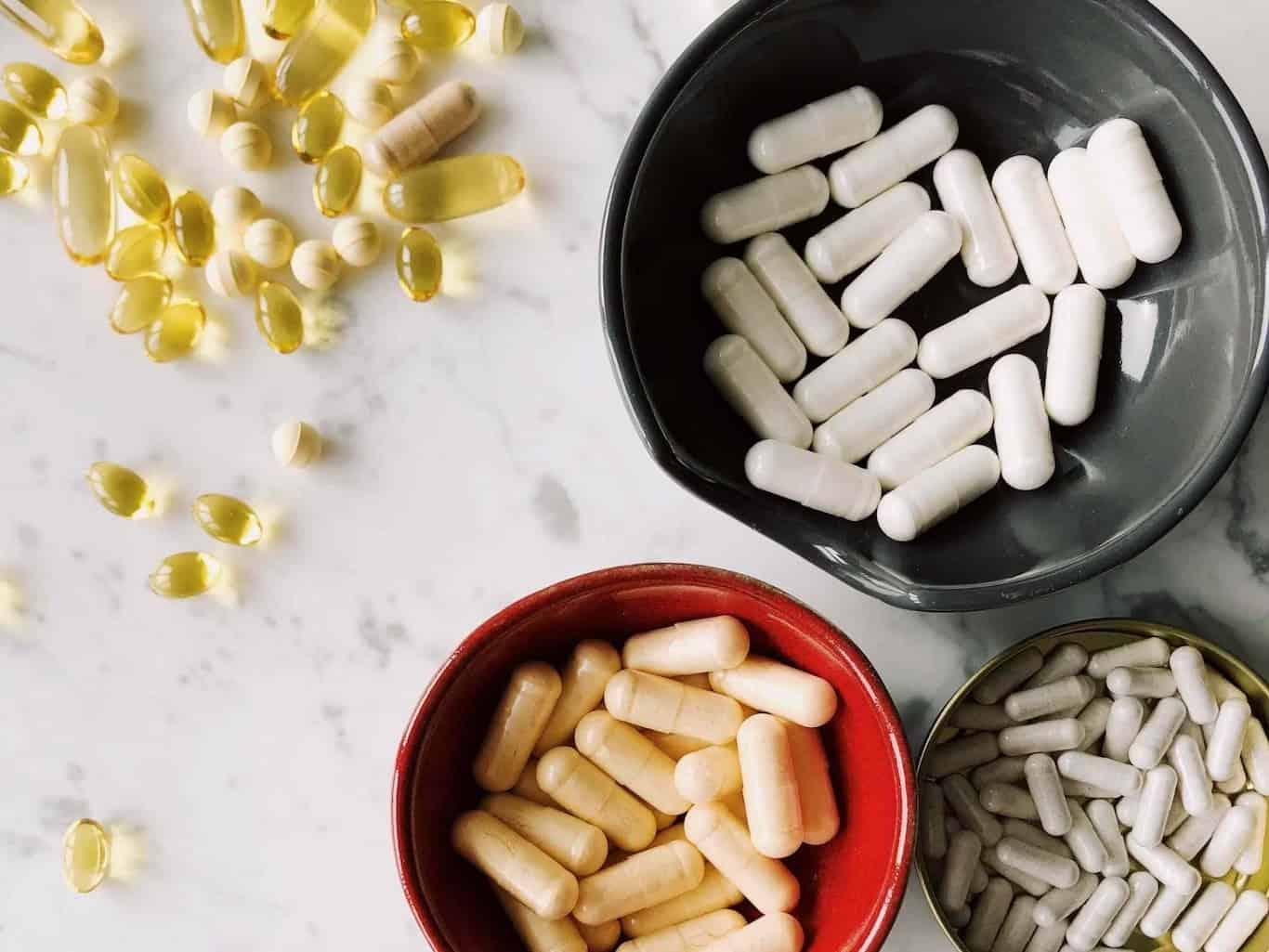
Patent Your Supplement
Consider patenting your unique formula. This protects your creation and gives your business a unique edge in the industry, marking your product as authentic and exclusive.
In Conclusion
The manufacturing of vegan supplements is a meticulous and ethical process that caters to the growing demand for plant-based health products and also upholds sustainability and wellness standards, ensuring a positive impact on consumer health and the environment.
Vegan Supplements Manufacturing: FAQs
How big is the vegan supplement market?
The vegan supplement market is experiencing significant growth. As of my last update in April 2023, it was expanding rapidly due to increasing awareness of health, wellness, and ethical considerations surrounding animal products. The exact market size varies by region and changes over time, but it’s a burgeoning segment within the broader supplement industry.
Can supplements be vegan?
Yes, supplements can be vegan. Vegan supplements are formulated without any animal-derived ingredients, making them suitable for people following a vegan lifestyle. They often use plant-based sources for nutrients and are careful to avoid common non-vegan ingredients like gelatin in capsules.
Should vegans take B12?
Yes, it is generally recommended that vegans take vitamin B12 supplements. Vitamin B12 is crucial for nerve function and blood formation, but it’s primarily found in animal products. Since vegans exclude these foods from their diet, supplementing with B12 is important to avoid deficiencies.
Are multivitamins vegan?
Not all multivitamins are vegan, but there are many vegan multivitamin options available on the market. When looking for a vegan multivitamin, it’s important to check the ingredient list for animal-derived substances and to look for certifications or labels that indicate the product is vegan.

